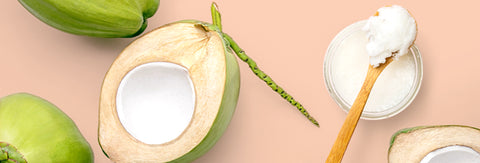There are many steps to getting fit, but for most, the first is typically Google. Once the “when” “why” and “how to’s” start to unravel, fitness FAQs start to feel unending. To give your search engine a break, we chatted with in-house fitness experts to get some real answers to your burning questions. Get your bookmarks ready; this one you’ll want to keep handy.
Q: Is it better to eat before a work out or on an empty stomach?
A: This is depends on the person. Some people may want something in their stomachs before the workout. Fasted (empty stomach) workouts may cause nausea for some. If you need something to eat before the gym, go for a fast digesting protein source like a smoothie and add a banana or apple 30 minutes before the gym.
Q: How do regimens like keto or intermittent fasting affect your ability to exercise?
A: Working out on a ketogenic diet can be done, as your body will be utilizing ketones (produced when the body burns fat for fuel) rather than glycogen (carbohydrates). This usually takes a couple months for your body to convert its energy source. During this phase, many will experience cramping while training as your body is still relying on glycogen as an energy source. Magnesium bisglycinate will help combat this. As a bonus, try sprinkling your meals with Himalayan sea salt. It contains trace minerals like potassium and magnesium and could be an added help.
Q: Can I eat whatever I want if I exercise regularly?
A: Focus on whole food sources that aid in proper digestion: healthy protein sources like salmon, chicken, turkey etc., carbohydrates like white/sweet potatoes, brown/basmati rice, beans/legumes (high in fibre) and healthy fats (olive oil, coconut oil, avocado, nuts/seeds).
Our experts say: AVOID foods that are highly refined with sugars and preservatives. Deep-fried foods are also a common factor contributing to weight gain.
Q: How many calories do I need to burn to lose 1 lb?
A: Loaded question! The short of it is that to lose body fat you need to consume less calories than your body requires.
Q: What are some of the best workouts to burn fat? Can I target areas?
A: While there are no specific workouts to target body fat, certain workout routines can benefit from high caloric consumption, which leads to overall fat loss. A few good examples are high intensity interval programs like Barry’s bootcamp or F45 training.
Q: How long does it take to see changes in the body?
A: Since much of initial “weight” loss is actually water loss, this tends to happen quickly. Weight training your body will expel excess water retention, so many can even experience up to 15-20 lbs of water weight loss in the first month! Fat loss is a marathon, not a sprint, so after this initial phase, losing approximately 1 lb of body weight per month will be the best route to fat loss. It takes a considerable amount of time to maintain muscle mass while burning fat. The more muscle mass on the body, the more efficient it is to burn body fat.
Q: How often should I work out?
A: For beginners I suggest starting 3-4 days a week. Slowly phase into the lifestyle. Most will experience DOMS (delayed onset muscle soreness), so rest days from weight training will be needed often for those just starting out. For experienced lifters, 5-6 days a week of weight training is enough.
Q: What’s the difference between cardio and weight training? Which is most effective?
A: While both have their benefits, weight training would be the first option. Weight training recruits more calories than cardio will (steady state). HIIT cardio is the best option for those looking to burn more calories. Combine this with weight training and you have a winning combo!
Q: Why am I so sore days after a workout?
A: Delayed onset muscle soreness. This is usually the case when it comes to improper pre and post- workout nutrition as well as no stretching post-work out. Try consuming a fast-digesting protein source immediately after the gym (protein powder preferred).
Q: Can you explain the heart rate monitor on cardio machines? What are they there for?
The heart rate monitor is great for trainers to monitor your heart rate to make sure it is elevated but at the same time not so elevated where you could pass out. If your heart rate goes above 120 beats per minute, that is typically the best rate for your body to be in a fat-burning state.




